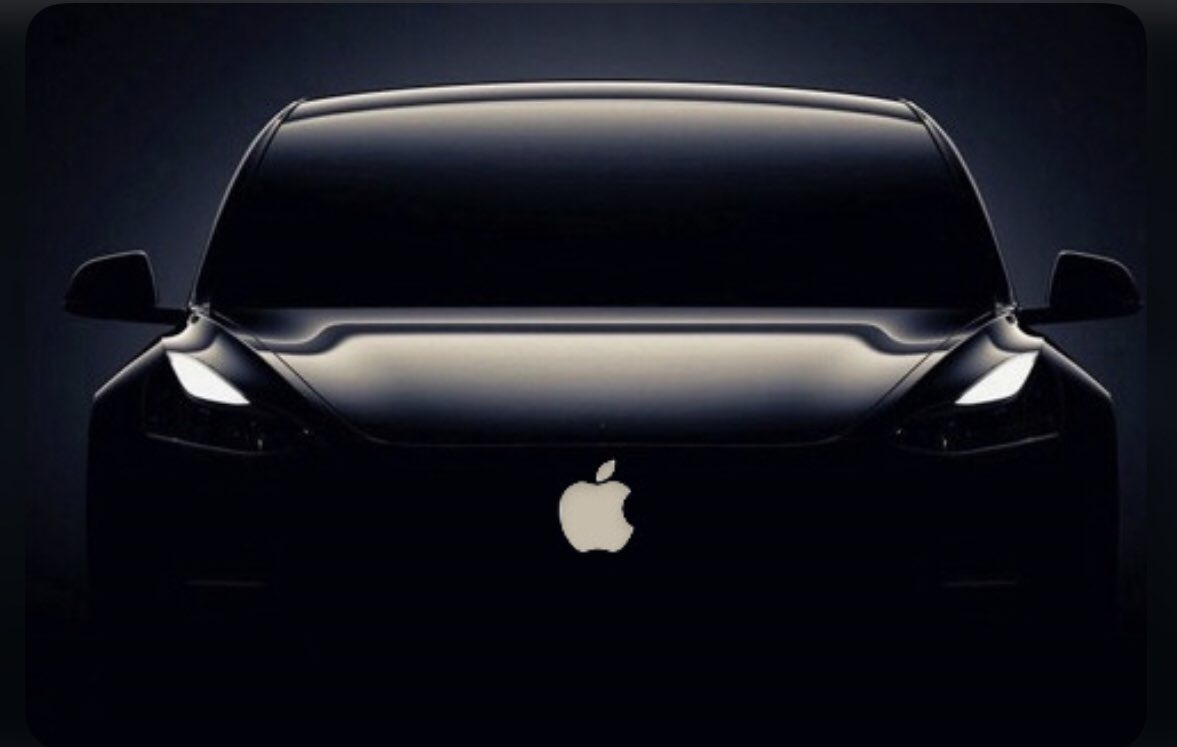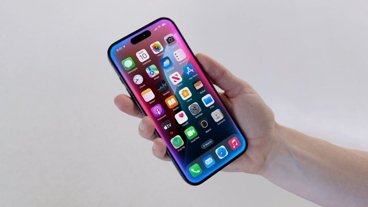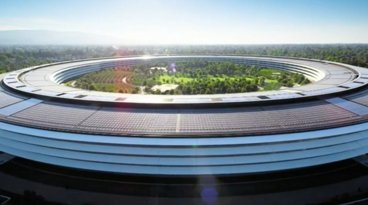Investment bank Morgan Stanley believes the "Apple Car" has an opportunity to drive down the normally razor-thin margins of the auto industry and pose a threat to Tesla.
In a web call with investors, Morgan Stanley lead analyst Katy Huberty spoke about rumors of an Apple-designed self-driving car or autonomous vehicle system. She answered questions alongside the bank's Chinese and European battery teams.
Speaking about Apple's vehicle opportunities, Huberty said that it makes sense for Apple to enter the car market because of the total size of the industry. Smartphones, Huberty points out, are a $500 billion total addressable market (TAM). Apple has about one-third of this market. But the mobility market is "$10 trillion."
"So Apple would only need a 2% share of this market to be the size of their "iPhone business," she points out.
One of the most important factors in Apple's potential entrance into the auto market is vertical integration, the analyst added.
"Apple really only succeeds when it's vertically integrated. This means designing the components and designing every part of the product how it looks and feels to the consumer, the software and the ecosystem that surrounds those products," she said.
Because of that, Huberty cast doubt on a partnership with another automaker. She also points out that Apple has already invested in areas relevant to an auto product, including operating systems, processors, batteries, cameras, and displays.
That vertical integration could even apply to Apple's extensive financing and trade-in service program, as well as AppleCare. "Financing and leasing and trade-in programs are incredibly important to a successful auto strategy," she writes.
If Apple controls every or most aspects of an "Apple Car," it'll have an opportunity to drive down the normally razor-thin margins of the auto industry. That's one sticking point confusing investors about the rumors.
"With respect to margins, investors frequently say that the current auto industry margins are highly unattractive compared with Apple's current mid-20% EBIT margins today. But I would remind everybody that when Apple entered the PC, handset and wearables market, the margins of competitors were razor thin," Huberty writes.
Through a vertical integration strategy and driving scale on a limited number of SKUs, Apple has shown an ability to "enter industries with low profitability and earn very strong margins. I don't see why autos would be any different."
"The auto market looks very similar to the industry structure and profitability of many other markets Apple has entered in the past," she adds.
Although the "Apple Car" story first surfaced years ago, Huberty says Apple is in a better position now because it's producing more of its components in-house. The move into a new market could also bring down Apple's churn rate to basically zero.
When it comes to the timing of an "Apple Car" release, Huberty notes that Apple is rarely first in an industry. A current timeline of four to five years out "makes sense, but it's certainly possible they come out a year or two later."
And it's possible that Apple could produce the car in the U.S.
"Tim Cook has said there will be other Apple products made in the US and a car would be a perfect example of that. When a product launches, usually over [half] of revenue would be in the US so you would want to manufacture locally in the US or Mexico from a logistics standpoint," Huberty says.
One of the bigger questions is whether Apple's vehicle would pose a threat to Tesla and existing automakers.
"The question is, is Tesla Blackberry or is Tesla Samsung? After the iPhone launch, Samsung was a very successful company alongside Apple for many years. And as the market shifted from feature phones to smart phones, Blackberry fell to the side even though they were early in the market," Huberty says.
The analyst adds that "there is an example where both Tesla and Apple could be successful for many years and help grow the market together."
Huberty maintains her 12-month AAPL price target of $144, based on a sum-of-the-parts model. She arrives at that estimate by applying a 5.5x enterprise value-to-sales (EV/Sales) multiple on Apple's product business and a 13.6x EV/Sales multiple on Services. That results in an implied 7x EV/Sales multiple for the 2021 fiscal year and a 32x enterprise value to free cash flow multiple.
Shares of AAPL were priced at $129.54 in intra-day trading on Thursday morning, up 2.33%.
 Mike Peterson
Mike Peterson




-xl-m.jpg)


-m.jpg)






 Wesley Hilliard
Wesley Hilliard
 Christine McKee
Christine McKee
 Amber Neely
Amber Neely
 William Gallagher
William Gallagher
 Malcolm Owen
Malcolm Owen

 Mike Wuerthele
Mike Wuerthele









17 Comments
Thought Apple don't make product if there is no good margin unless fits strategically into long term benefits across the board products.That is benefit of vertical integration.
By then Tesla is way ahead of the game, it would threatens other legacy car maker....not Tesla
Apple don’t have vertical integration on manufacturing. Apple design and hired companies to build and assemble things according to Apple’s spec.
They’re a decade behind on autonomous driving and data models.
I don't think Katy Huberty's logic is quite right here: she says that it makes sense for Apple to build a car because the *mobility* industry is a $10T dollars, so Apple only needs a 2% market share to have a business the size of iPhone. But Apple wouldn't bet building a "mobility" widget, they'd be building a "car" and the car industry isn't anywhere near $10T in size - i.e. Apple would need a significantly larger share of the car market in order to get another iPhone business.
The second problem with her logic is that, by her own reckoning, Apple succeeds because it vertically integrates. It was particularly successful with the iPhone in that regard, because its competition (Google/Android) did not. But if it enters the car business, it'll already find a car manufacturer that's very established and very vertically integrated - Tesla. So Apple's vertical integration, that helped it so much in the iPhone market, will just table-stakes when competing with Tesla. And, as another poster already commented, we don't even know whether Apple can vertically integrate manufacturing, which Tesla has managed.
My personal feeling is that Apple is several years too late in trying to take on Tesla. If it wants to overcome that company's head start, it needs to either tightly partner with or purchase outright an existing car manufacturer and then use its massive financial resources to upgrade that partner to a level of efficiency equal or greater than what Tesla has achieved.